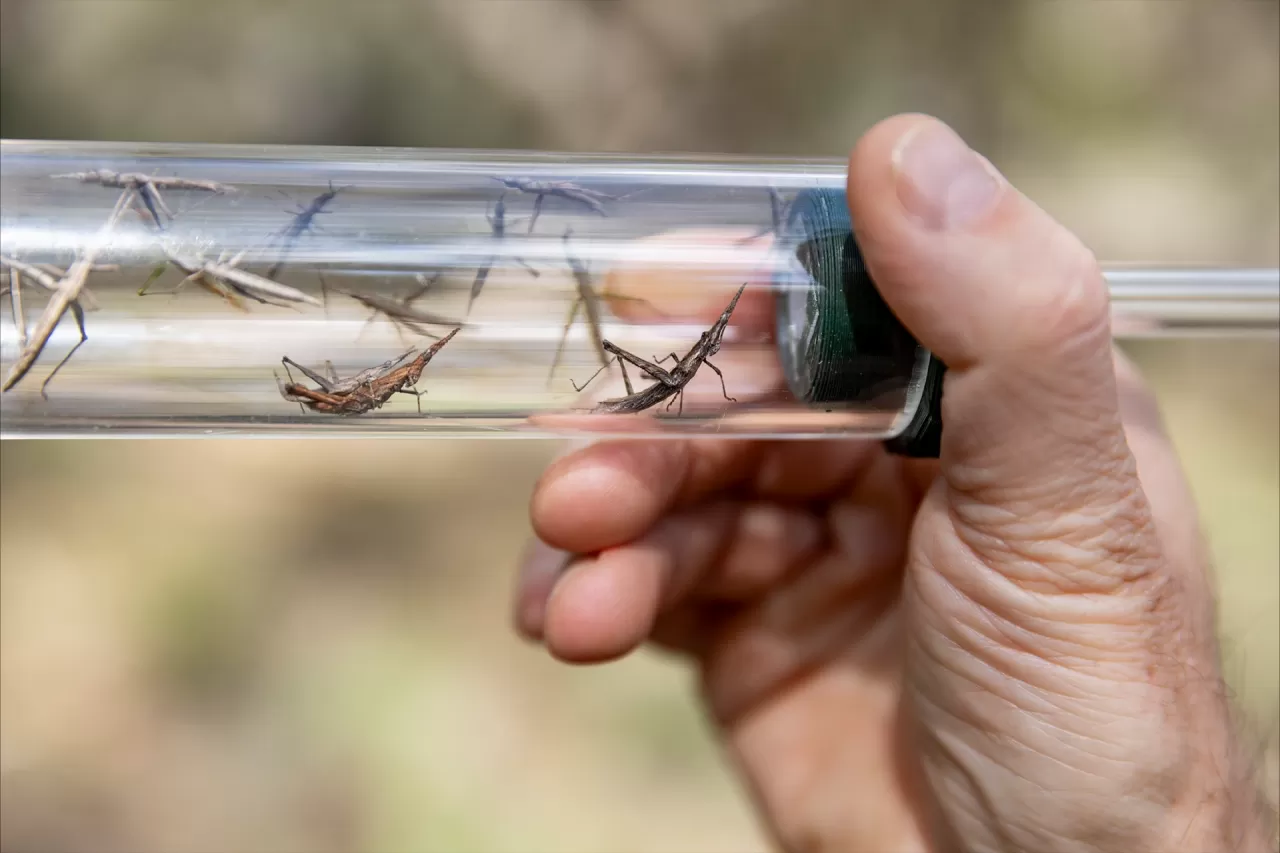
Professor Michael Kearney
Physiological ecologist, School of BioSciences, Faculty of Science, University of Melbourne
See research profile
Sciences & Technology
The wingless grasshopper that could cross Bass Strait, but not the Yarra River
New genomic approaches can track the movement of Australia’s flightless matchstick grasshopper

Environment
Lockdown ‘field trip’ reveals whereabouts of Australian grasshoppers
Using old field notes and new technology, researchers used COVID lockdowns to retrace the steps of pioneering Australian insect surveyors, virtually

Sciences & Technology
The Australian grasshopper that’s given up sex
A unique ‘matchstick’ grasshopper that’s evolved into an all-female species that doesn’t reproduce through sex gives us fascinating insights into evolution

Sciences & Technology
Mini-beast renaturing: A time for local action
Insect numbers are dwindling around the world and that has an ecological knock-on effect, but we could help by renaturing mini-beasts in our own urban backyards

Sciences & Technology
The grasshopper that was lost, then found, is now endangered
The rare Key’s Matchstick Grasshopper was rediscovered after it was thought to be extinct, but as its habitat shrinks, it’s now endangered

Sciences & Technology
Rediscovering a ‘lost’ species
A rare insect species, the Key’s Matchstick Grasshopper, was thought to be extinct in Victoria but has now been rediscovered, giving hope for conserving its future

Sciences & Technology
The sleepy lizard awakens new tools for climate change research
The way Australia’s sleepy lizard reacts to water shortages gives us an insight into the effects of climate change on animals

Sciences & Technology
Grasshoppers: The new poster bug for insect conservation
Land clearing has all but wiped out Key’s matchstick grasshoppers in Victoria, but there is hope for this uniquely Australian insect
